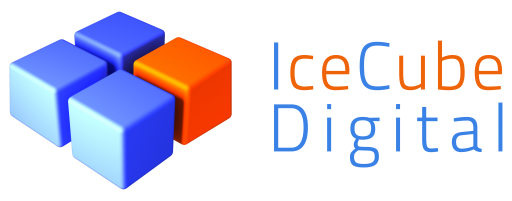AI has quickly become a major player in digital marketing, transforming how businesses create SEO content. With 63% of marketers predicting that most content in 2024 will come from generative AI, it’s clear the shift is happening fast. The pressure to consistently produce quality, optimized content has marketers exploring new tools to meet demand.
The big question, though, is whether relying on AI for SEO content is a smart move. Can AI really produce effective content that ranks well and engages readers? This post looks at both the potential and the pitfalls, offering practical tips for those considering AI as part of their content strategy.
Understanding AI in Content Creation
AI content creation has quickly become a go-to for marketers looking to produce more content without burning through resources. It’s all about using AI to generate text, whether it’s full blog posts, social media updates, or product descriptions.
These tools, powered by natural language processing, can write content that mimics human language, making it easier to meet tight deadlines. Some platforms specialize in generating various types of written content, while others focus specifically on improving SEO by analyzing keywords and search trends.
AI is already heavily used for keyword research, topic ideas, and even outlining full articles, saving marketers hours of manual effort. Whether you’re aiming to speed up content creation or improve your SEO ranking, the right tool can make all the difference. Below, you’ll find six of the best AI tools to use for SEO content creation, from writing assistance to keyword optimization.

See How Our Experts Can Drive More Traffic to Your Website!
SEO: Boost your rankings and drive more organic traffic today!
Website Design/Development: Create a stunning website that converts visitors into customers.
Paid Media: Reach the right audience at the right time with expertly managed paid media.
AI Content Tools You Should Know About
| AI Tools | What It Does | Best For |
|---|---|---|
| ChatGPT | Generates human-like text based on prompts. Useful for blog posts, social media content, and creative copy. | General content creation, idea generation, and first drafts. |
| Clear scope | Optimizes content for SEO by providing keyword suggestions and topic outlines based on search data. | Improving the relevance of your content in search rankings. |
| Copy.ai | Focuses on marketing copy, helping with everything from product descriptions to ad headlines. | Quick, catchy marketing text for campaigns and ads. |
| Surfer SEO | Helps optimize content for SEO by analyzing top-performing articles and suggesting adjustments. | Writers who want to ensure their content ranks well by using the right keywords and structure. |
| Jasper | Creates various types of content, from blogs to social media posts, with an emphasis on long-form text. | Bloggers and content marketers needing well-structured, longer articles. |
| MarketMuse | Analyzes the competition and suggests content improvements by identifying gaps and recommending keywords. | Content teams looking to improve topical authority and cover subjects thoroughly. |
Pros of Using AI for SEO Content
- Efficiency and Speed
AI significantly accelerates content creation. Instead of spending hours researching, drafting, and editing, AI tools can generate articles, social media posts, or product descriptions in a fraction of the time.
This efficiency enables businesses to scale content production quickly, meeting the demand for more frequent publishing without sacrificing consistency. Whether you need dozens of blog posts or a quick turnaround on ad copy, AI can help meet those deadlines.
- Cost-Effectiveness
Hiring writers, editors, and SEO specialists can be expensive, especially for smaller businesses. AI tools offer a cost-effective alternative by reducing the reliance on manual labor. While it’s still crucial to involve human oversight for quality control, AI can handle many of the repetitive tasks, allowing companies to save on labor costs.
For startups and small businesses, this can make a huge difference in managing budgets while still producing high-quality SEO content.
- Data-Driven Insights
One of AI’s greatest strengths lies in its ability to analyze vast amounts of data quickly. AI tools can sift through keyword trends, search data, and audience behavior to provide suggestions for more targeted content.
This ensures that your articles or web pages are optimized for search engines and aligned with what your target audience is looking for. These insights help tailor content to rank better and resonate with readers.
- Enhanced Productivity for Human Writers
AI can also serve as a productivity booster for writers. Instead of starting from scratch, writers can use AI-generated outlines, drafts, or topic ideas as a foundation. This allows them to focus on refining and adding creativity to the content, rather than getting bogged down in routine tasks.
By combining AI with human expertise, teams can produce higher volumes of well-polished content faster than before.
Cons of Using AI for SEO Content
- Lack of Originality and Depth
While AI excels at producing content quickly, it often falls short in terms of creativity and depth. AI-generated text can sound formulaic, lacking the unique voice and personality that human writers bring.
This can result in content that feels generic or fails to engage readers on a deeper level. Moreover, AI struggles with producing complex analyses or offering fresh perspectives, which can be essential for thought leadership or brand-building content.
- Potential for SEO Issues
One risk of using AI for SEO content is the possibility of creating keyword-stuffed articles. AI tools are trained to optimize for search engines, but sometimes they overdo it, cramming in too many keywords or failing to create a natural flow. This not only affects readability but can also lead to penalties from search engines.
Low-quality content with poor structure or repetitive phrases can harm a website’s ranking, making it counterproductive to SEO goals.
- Content Authenticity
AI-generated content often struggles to connect with readers in an authentic way. Human readers are quick to detect a lack of genuine tone, which can make AI-produced articles feel disconnected or impersonal.
Authenticity is crucial for building trust with your audience, and AI struggles with the nuances of writing that reflect brand voice or resonate emotionally with readers. This can impact user engagement and reduce the effectiveness of content.
- Ethical and Legal Considerations
AI content creation comes with potential ethical and legal concerns, particularly regarding copyright. AI tools may unintentionally use content from other sources without proper attribution, raising plagiarism issues.
Additionally, AI-generated content often requires thorough fact-checking. There’s always a risk that an AI tool could produce inaccurate or misleading information, which can damage a brand’s credibility if not properly vetted by human editors.
How to Use AI Effectively for SEO Content (Tips)
- Combine AI with Human Expertise
AI can handle a lot of the heavy lifting, such as keyword research, topic generation, and even drafting content. However, human involvement is crucial to ensure the content reflects the right tone, creativity, and depth. AI can offer a strong starting point, but human writers are essential for refining, editing, and adding unique perspectives that AI simply cannot generate.
For businesses looking to maintain high-quality SEO content, working with a professional SEO agency can help strike the right balance between AI efficiency and human creativity. Agencies often have the expertise to seamlessly integrate AI tools into their processes without compromising the quality of the final product.
- Focus on High-Quality Inputs
The quality of AI-generated content heavily depends on the quality of the inputs it receives. Providing clear prompts, detailed briefs, and structured guidance allows AI to generate better, more targeted content.
For instance, if you want a blog post on a specific topic, the more detailed your instructions, the better the output. A professional SEO agency can help craft these inputs, ensuring that the content produced aligns with both your SEO strategy and your brand’s unique voice.
- Edit and Proofread Thoroughly
AI can create a decent first draft, but it should never be published without thorough human review. Editing and proofreading are essential to catch errors in grammar, tone, and factual accuracy. Additionally, content should be reviewed for alignment with your brand voice and overall messaging.
This is another area where a professional SEO agency can play a key role—they have skilled editors who can refine AI-generated drafts to meet high editorial standards, ensuring the content reads naturally and engages your target audience.
- Stay Updated on AI Developments
AI is constantly evolving, and staying up-to-date on the latest tools and trends is crucial to maintaining an effective content strategy. Regular updates to your AI tools ensure that you’re leveraging the most current data and techniques available. SEO algorithms also change frequently, and working with a professional SEO agency ensures you’re always in sync with the latest practices, allowing you to stay ahead of competitors.
By blending AI with human expertise, refining inputs, and ensuring thorough editing, businesses can maximize the benefits of AI without sacrificing quality.
Should You Use AI for SEO Content? A Balanced Conclusion
AI offers clear advantages when it comes to efficiency, speed, and cost-effectiveness. It can produce content quickly, handle large-scale data analysis, and assist with SEO research.
However, AI often falls short in delivering originality, depth, and authentic engagement, making human oversight crucial. The potential for SEO issues like keyword stuffing and the need for thorough editing further highlight the importance of combining AI with human input.
Whether AI is a good fit for your content strategy depends on factors like scale, budget, and your specific goals. If you’re a growing business looking to produce large volumes of SEO content while keeping costs low, AI can help you scale faster.
On the other hand, for companies that prioritize creative storytelling or building brand trust, a more hands-on approach might be necessary. Partnering with a WordPress SEO company can provide the expertise needed to strike the right balance, optimizing AI tools while ensuring quality content that resonates with your audience.
Ready to explore AI content tools for your SEO strategy? At Icecube Digital, we specialize in delivering high-quality, optimized content. As a leading WordPress SEO company, we offer a free consultation to help you find the right tools and strategies for your business. Get in touch today to start scaling your SEO content effectively.






